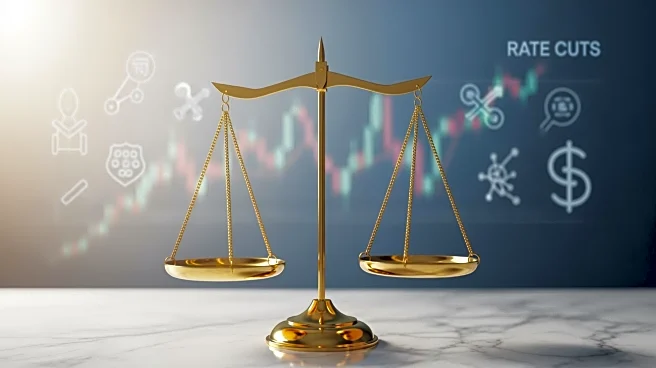What's Happening?
Federal Reserve Governor Stephen Miran has expressed concerns that the current level of short-term interest rates is too restrictive for the U.S. economy. In a recent interview, Miran suggested that the federal funds rate, currently between 3.75% and
4%, should be reduced to mitigate economic risks. He highlighted that the restrictive policy could pose unnecessary risks, especially given the state of the labor market. Miran's comments come amid a lack of official economic data due to a government shutdown, which has complicated the Federal Reserve's decision-making process. Despite these challenges, Miran remains inclined to support a rate cut in December, barring any unforeseen economic developments.
Why It's Important?
The Federal Reserve's interest rate decisions have significant implications for the U.S. economy, affecting everything from consumer borrowing costs to business investment. Miran's push for rate cuts reflects concerns about the potential negative impact of high rates on economic growth and employment. Lowering rates could stimulate economic activity by making borrowing cheaper for consumers and businesses. However, it also raises concerns about inflation, as lower rates can lead to increased spending and demand. The debate within the Federal Reserve highlights the delicate balance policymakers must strike between fostering economic growth and controlling inflation.
What's Next?
The Federal Reserve's next steps will be closely watched by financial markets and economic stakeholders. A decision to cut rates in December could signal a shift in monetary policy aimed at supporting economic growth. However, Federal Reserve Chair Jerome Powell has cautioned that a rate cut is not guaranteed, indicating that the decision will depend on forthcoming economic data and developments. Stakeholders, including businesses and investors, will be monitoring the situation closely, as any changes in interest rates could have wide-ranging effects on the economy.
















